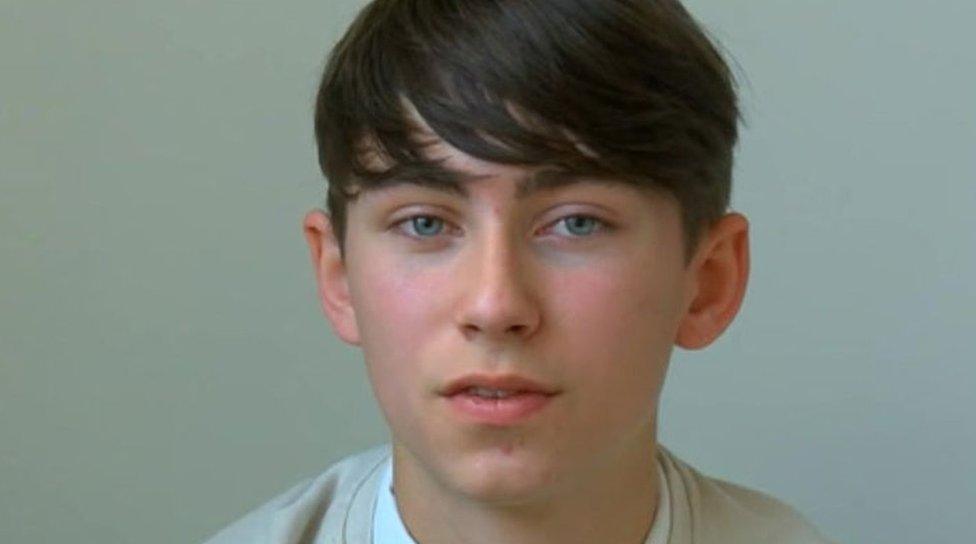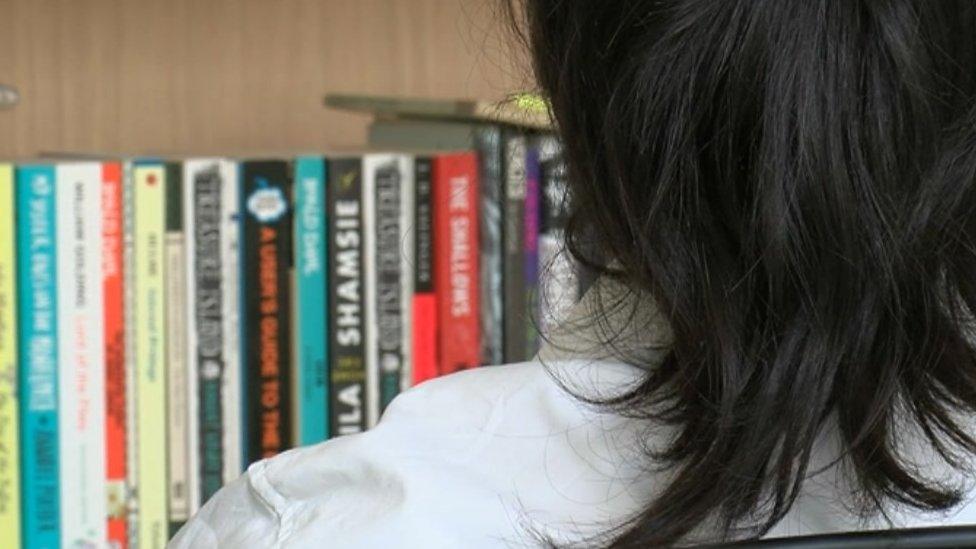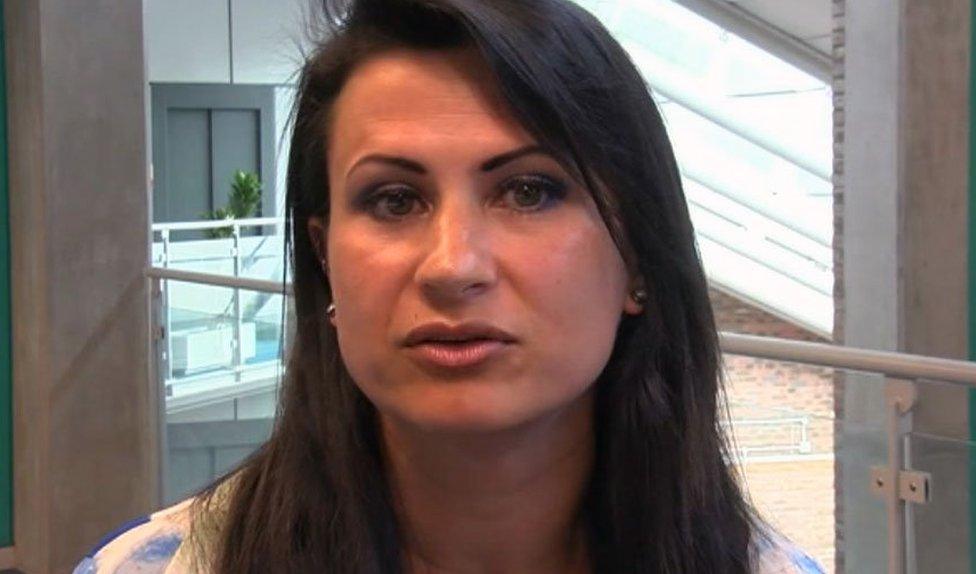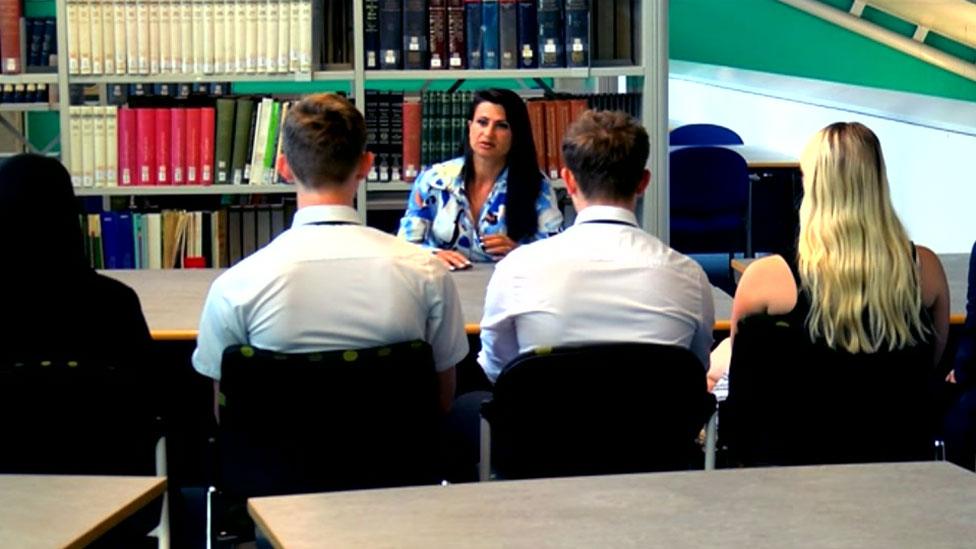Sex education: Research in Birmingham reviews provision
- Published

Joe said teachers were having to deal with problems for which they may not be trained
Some pupils say because of poor sex education at school, they have to trawl the internet to discover more about issues such as consent and sexuality. In response, teenagers are contributing to a major research project at the University of Birmingham that could reshape the subject within the National Curriculum.
A YouTube video about consent, made and shared by police, has had more than 6m views. This is how it opens:
"If you're struggling with consent, just imagine instead of initiating sex, you're making them a cup of tea.
"If they say 'no thank you', then don't make them a cup of tea."
Natania, a 17-year-old from Birmingham, watched the video while in sixth form and said she instantly felt the issue of consent should have been taught to her at an earlier age.
"I'm very concerned about my generation as a whole because I feel everyone should be talking about [consent]," she said. "In my experience, some people can find it hard to take 'no' for an answer."
For many young people exploring topics around sex and sexuality, the internet has become their primary source of information.
In Natania's city, I've been speaking to teenagers about how they've accessed age-appropriate and accurate information about sex - and it's left some, they say, ashamed, confused and desperate for more knowledge.
The stories they've shared include schools where boys and girls have been segregated, faith schools pushing a "no sex before marriage" view, and teachers refusing to discuss homosexual relationships.

Teenagers said they were left feeling anxious without the right resources
Dr Sophie King-Hill is leading research at the University of Birmingham into the issues, with funding from the Economic and Social Research Council.
She wants to investigate sexual behaviours in young people aged 13 to 18 in the UK.
The data could be used to develop a new assessment tool for teachers and other professionals to support healthy sexual behaviours and tackle harmful ones, including combating rape culture; the instances in which the crime and its effects are trivialised.
And amid the issues, consent is prominent.
"[It's] a huge player," Dr King-Hill said, adding schools needed to talk about it.

Dr Sophie King-Hill believes current teaching discounts many young people's experience
Other experiences of the education system include that of Alex, who's 17 and bisexual. She told me her school didn't help her to understand what it was like for two women to experience a sexual relationship and how to keep herself safe.
"In Year Six we were taught about puberty," she said. "They had segregated females and males in two separate rooms.
"It was quite uncomfortable for me because the teacher that was there didn't know how to communicate with the children.
"I had to go and search online for information and half of it I didn't need so I was overthinking it and I got very confused and anxiety-filled."
Dr King-Hill is concerned about how skewing teaching of the subject through a narrow outlook can contribute to worsening mental health among young people.
She said while Relationships and Sex Education (RSE) was made compulsory in schools in 2020, its success depended on individual school staff's skillset and how comfortable they were discussing matters.
"I think the current system at the moment is very heteronormative - that's very focused upon a male-female relationship," said the academic.
"It's based on assumptions that people will get married, and this really discounts a large swathe of young people that need support, education and a safe space to explore sexuality."
Pupil Joe, 17, expressed some sympathy for teachers, however.
"Teachers are playing the role of a social worker and they're having to deal with situations and they should be trained like a social worker and feel confident talking about these problems," he said. "It's difficult for a teacher - they didn't train for this."
The government issued updated RSE guidance in 2021, making it clear young people should get the information needed "to help them develop healthy, nurturing relationships" of all kinds, not just intimate ones.
It is designed to enable them to know what a healthy relationship looks like and what makes a good friend, a good colleague and successful marriage or other type of committed relationship.
An approach in use at a different school to those attended by the three 17-year-olds sees pupils being encouraged to help teachers shape the learning.
"We want to make sure their relationships are founded in love and they are always considering consent within those," says Rebecca Tigue, director of character at the University of Birmingham School in Edgbaston.
"I think we've always tried to reflect the community to think about the needs of individuals but often that comes from using resources that we know are created by adults who perhaps are a little out of touch with the reality of children's lives.
"And so what this will bring is a genuine understanding of the students' voice in all of this and I think it's been missing."

Teenagers are giving their views to help researchers
But amid any shortfall in formal classroom teaching, it is not to say the internet can flawlessly fill in gaps in knowledge.
Dr King-Hill warns about turning to social media as a source of sex education and accessing areas of the web where young people may be exposed to false or misleading information, including porn.
"Porn is really accessible and that's a really key aspect of why we need to find out what's going on with young people without imposing shame on them," she said.
The research is being carried out with sexual health charity Brook and the Lucy Faithfull Foundation, a charity preventing child sexual abuse. It also has the support of teaching unions.
Meanwhile, the government continues to urge professionals to teach aspects of law around sex and relationships - specifically about marriage, consent, violence against women and girls, and online behaviours.
Natania, who called the "cup of tea" video simple and clear advice, said she felt the more people talking about sex education the better.
"I think schools should teach sex education like they teach maths and English," she said, "because I think it's equally as important."

Follow BBC West Midlands on Facebook, external, Twitter, external and Instagram, external. Send your story ideas to: newsonline.westmidlands@bbc.co.uk, external